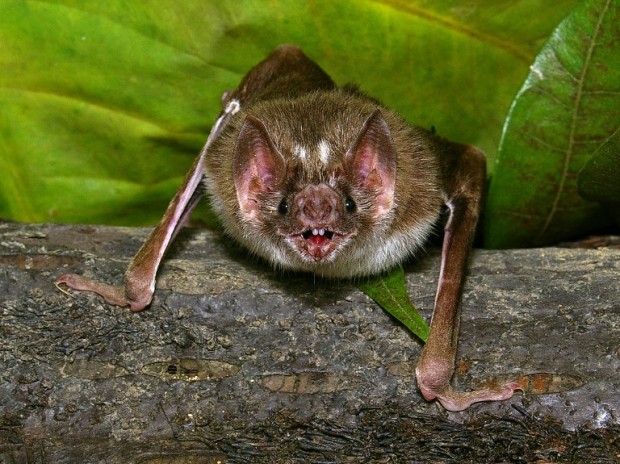
An undated handout photo released by Nature magazine on August 2, 2011, shows a vampire bat, Desmodus rotundus. AFP PHOTO / NATURE MAGAZINE / PASCUAL SORIANO
MIAMI, United States — US health authorities on Monday studied the remains of a dead bat discovered inside a prepackaged salad mix sold in Florida for possible traces of the deadly rabies virus.
The Fresh Express company, a subsidiary of Chiquita Brands, announced a “precautionary recall of a limited number of cases” of their prepackaged Organic Marketside Spring Mix, which had been distributed to Walmart stores across the southwestern United States.
The company issued the recall on Saturday when it learned “that extraneous animal matter was allegedly found” in a salad container.
“Out of an abundance of caution, all salads manufactured in the same production run are being recalled,” Fresh Express said, failing to describe the offending “animal matter.”
The US Centers for Disease Control and Prevention(CDC) said it was working with the Florida health department and the US Food and Drug Administration “to support an investigation of a dead bat” found in the packaged salad sold at “a grocery store in Florida.”
The bat carcass however was in poor condition.
“The deteriorated condition of the bat did not allow for CDC to definitively rule out whether this bat had rabies,” which is endemic to the creatures across the United States, the CDC said.
CDC spokesman Thomas Skinner told AFP on Monday that the chances of rabies contagion from a dead animal are very low. CBB